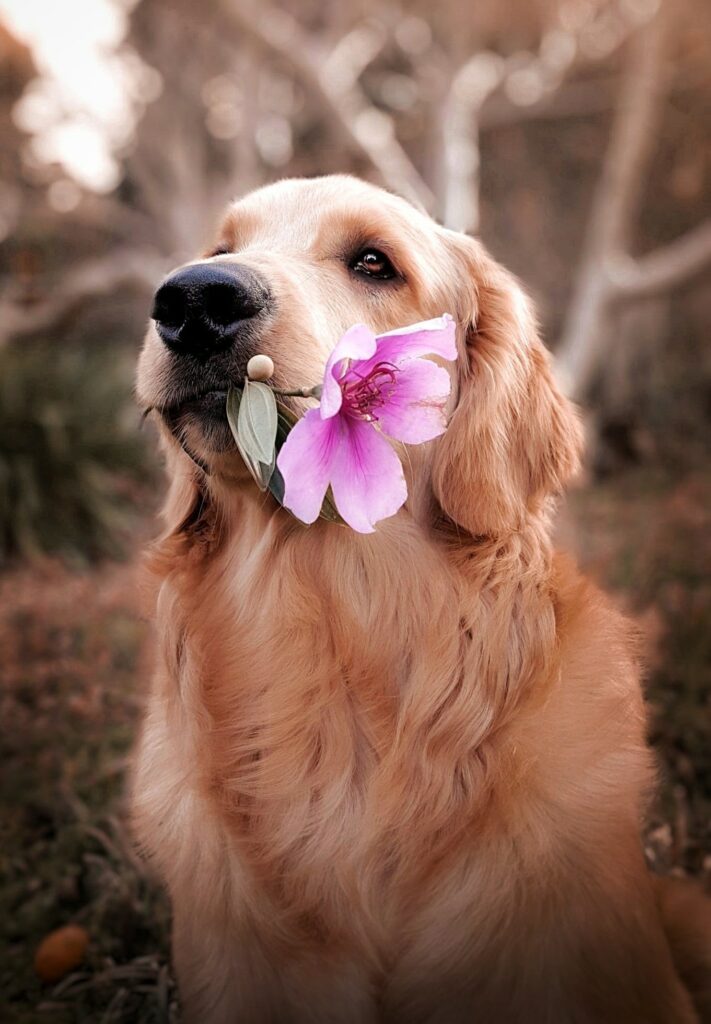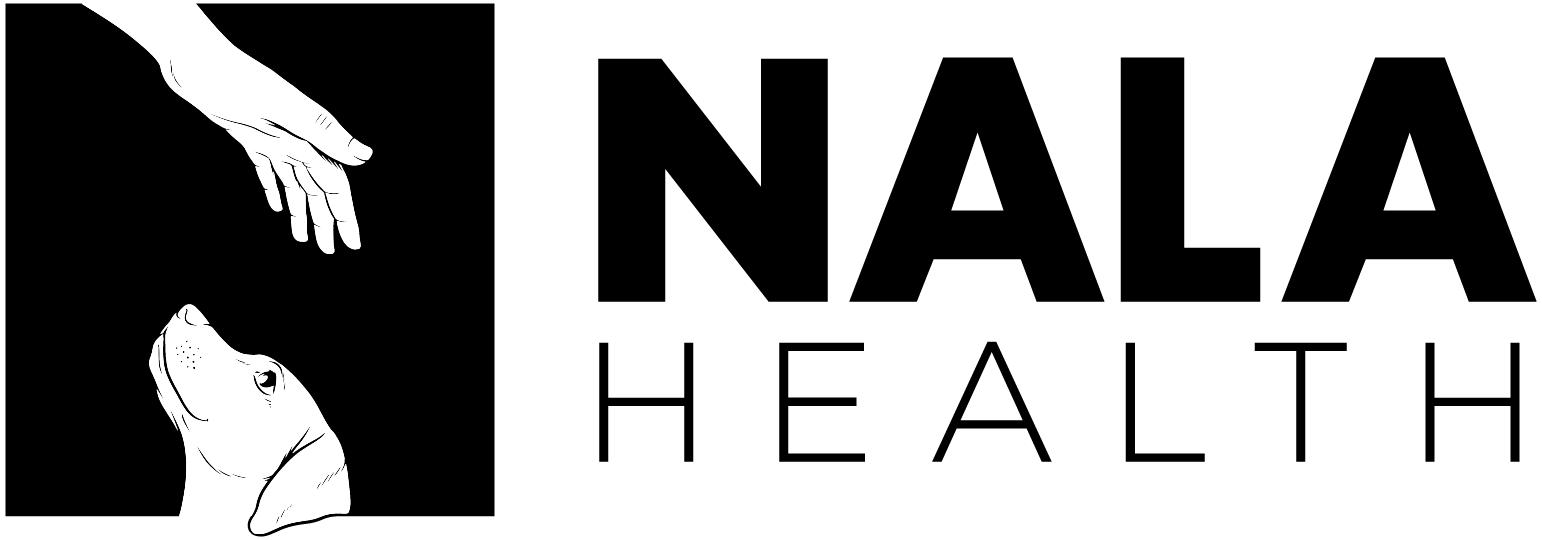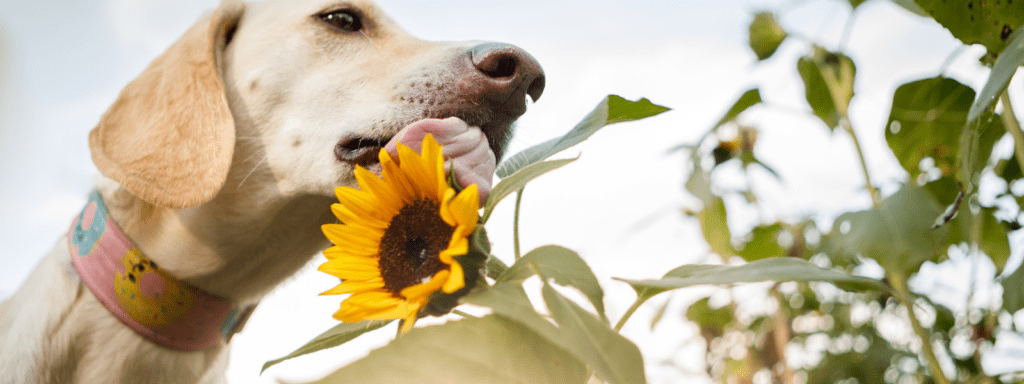Why does my dog eat poop?
 Synne Hemsen Berg
Synne Hemsen Berg
As gross as it may sound, eating poop is actually a fairly common behaviour in dogs. Fortunately, it can be stopped. However, the habit of eating poop, also known as coprophagy should be rectified quickly to avoid long-term problems.
Why do dogs eat poop?
Dr Benjamin Hart conducted a study in which 1552 dog owners were asked if their dogs ate faeces. The study showed the following: 23% of dog owners had observed their dog eating faeces one time. 16% had observed that it ate faeces more than 6 times, diagnosing them with coprophagy. Dr Benjamin concluded that eating one’s own or others’ faeces is in the dog’s DNA.
Although it is in dogs’ DNA, there may be other reasons why eating faeces is triggered. Medical conditions can result in poop eating. If your dog eats poop often and over a longer period of time, it is best to discuss it with a veterinarian.
Curiosity
A dog’s sense of taste is an important tool to explore its surroundings. Taste and smell are important ways for dogs, especially puppies, to get information about the world around them. So the fact that your dog eats poop – its own poop or someone else’s – may be due to your dog’s urge to explore. This curiosity can cause your dog to actually enjoy the taste of faeces. If you do not stop this behaviour, it can quickly become a lifelong habit.

Medical issues or hunger
Medical problems that hinder the absorption of nutrients in the digestive system, or hunger can lead to your dog eating faeces. One theory is that dogs eat faeces to add various nutrients that are lacking in their diet. It is believed that dogs eat poop to supplement deficient vitamins, enzymes, minerals, protein, and/or probiotics. Your dog may also resort to eating faeces if he is hungry or eating a low-calorie diet that does not satisfy them.
Diseases such as diabetes, thyroid problems and certain medications (such as steroids) can increase the dog’s appetite, which can contribute to the dog eating faeces. If you suspect that your dog is ill, you must see a veterinarian immediately to get the right treatment.
Mental health
Puppies that are bored may eat poop as a pastime. Anxious, lonely or confined dogs have been seen to eat faeces more often than others. Dogs can also eat poop to get our attention, especially if we have big reactions when they eat poop. Make sure you provide your dog with adequate exercise, play, mental stimulation, food and sleep to promote good cognitive health.
Instinct or learnt behaviour
The cause of eating faeces may lie in the dog’s DNA. Females that have just had puppies tend to eat their offspring’s faeces. Ancestral wild dogs would eat the puppy’s faeces to prevent predators from smelling it. We still see this protective behaviour. There is nothing to worry about if you see your female dog begins with this. However, puppies may learn this behaviour from their mom.
Additionally, puppies can eat their own faeces to “hide the evidence”. In the process of becoming house-trained, puppies may feel ashamed even when going outside. Punishment will not help prevent the behaviour.
Lastly, you may motivate the poop-eating behaviour if you shout and run after the puppy. The habit is reinforced by running and chasing your puppy, as your puppy will perceive this as playing. Playing will therefore be seen as a reward for eating poop.

Is it dangerous for my dog to eat poop?
In addition to the fact that eating poop is gross, it can be harmful to the dog’s health. Stools from other animals or humans are especially dangerous as they may contain foreign parasites, bacteria, or medicines that have not been absorbed by the body. Therefore, you should pay special attention if your dog eats faeces from other dogs, cats and humans. Stools from horses and cows primarily contain grass and grain, which are generally not as dangerous. If the dog eats its own faeces, it is not as dangerous either. This is because the potential parasites, bacteria and medicines are from their own body.
Monitor your dog’s overall health after eating faeces. If your dog becomes ill, lethargic, or has a fever, you must take it to the vet immediately.
Prevent your dog from eating poop
There are different methods to prevent coprophagy. The first step to preventing the behaviour is to understand why your dog is eating poop. Only then can you determine the correct way of stopping it.
- Keep the area around your dog free from temptation. Pick up after your dog as soon as it relieves itself.
- When housetraining your puppy, be mindful of not punishing accidents. Punishment can lead to fear and can trigger poop-eating to “hide the evidence”. Instead, praise your puppy when going to the bathroom where she is supposed to.
- Teach your dog the command “leave it” or something similar. This is useful in various situations such as chewing on furniture, eating off your plate and so on.
- You can try to change the food to a formula that is easier to digest. Make sure your transition to a new food slowly to prevent stomach upset.
- If you suspect that your dog is malnourished, you can give more nutritious dog food and some supplements. You can also feed the dog a little more food if it seems hungry and is not overweight.
- If poop eating occurs due to anxiety, boredom or isolation, you must change the environment. Your dog needs to feel safe and comfortable. Make sure you meet your dog’s daily needs so they feel fulfilled.
- If none of the above methods works, you can also put a muzzle on your dog to physically prevent them from eating poop on walks.
Although eating faeces can be a natural thing for a dog, it is not particularly healthy. If you are unable to stop this behaviour yourself, you should contact your veterinarian for advice. You need to rule out underlying disease. by visiting your vet. If it is not a medical cause but a behavioural problem, is recommended to contact a dog trainer. This person can help you change the behaviour effectively and positively.

